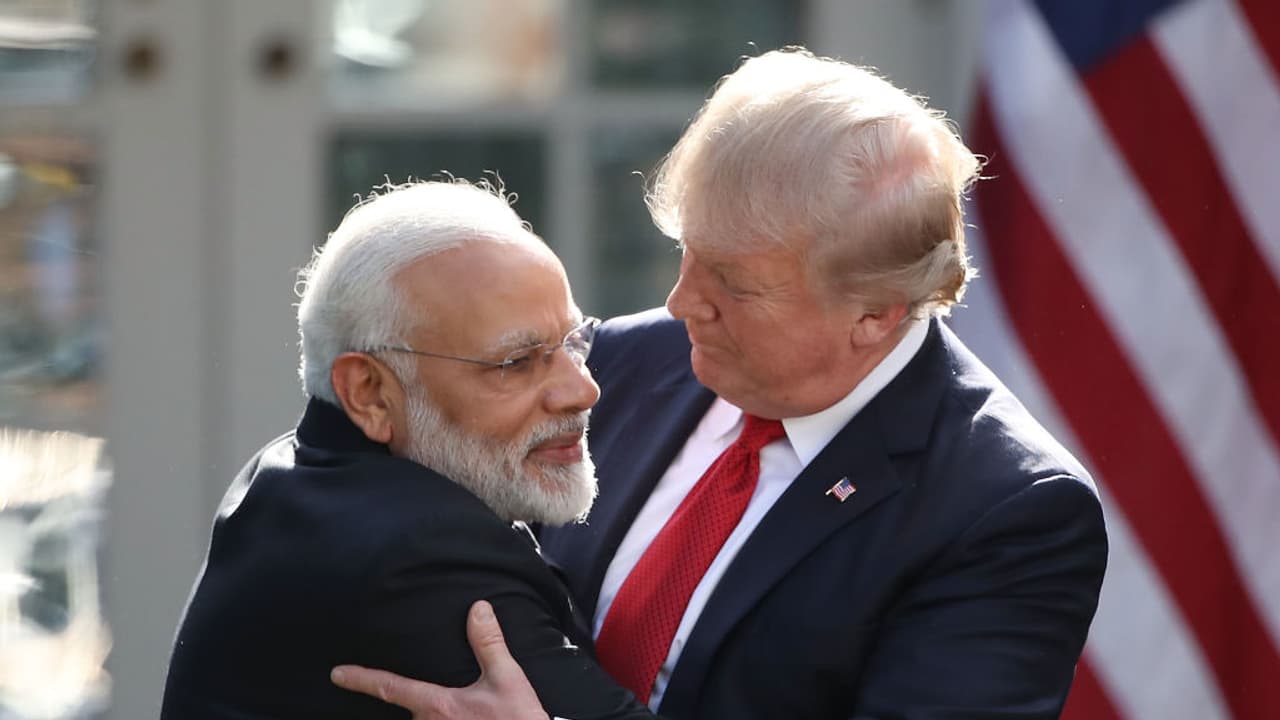India said it remains engaged with the US on trade and views the QUAD as a valuable forum. India supports peace in Ukraine and welcomes efforts towards resolving the conflict. Trump’s post suggested India and Russia had aligned with China.
New Delhi [India]: The Ministry of External Affairs (MEA) on Thursday, September 5 declined to comment on US President Donald Trump’s latest remarks in which he mentioned India and Russia’s proximity to China. Trump made the remarks in a post on X days after SCO Summit in Tianjin, China, which was attended by Prime Minister Narendra Modi and Russian President Vladimir Putin. “I have no comments to offer on this post at this time,” MEA spokesperson Randhir Jaiswal said in response to media queries. Answering another query, Jaiswal said the relationship between the United States and India is very important for India. “Both our countries share a comprehensive global strategic partnership, which is anchored in our shared interests, democratic values and robust people-to-people ties. This partnership has weathered several transitions and challenges. We remain focused on the substantive agenda that our two countries have committed to, and we hope that the relationship will continue to move forward based on mutual respect and shared interests. As you would have seen, I would draw your attention to a joint military exercise that is underway in Alaska. A few days ago, there was a 2+2 inter-sessional meeting… Talks between both countries is going on and we are committed to strengthening our partnership,” he said. Answering another query, Jaiswal said India continues to remain engaged with the US side on trade issues.
“We see the Quad as a valuable forum for discussion among the four member countries on shared interests on several issues. The leaders’ summit is scheduled through diplomatic consultations among the member countries. As far as the Ukraine conflict is concerned, we welcome all the recent efforts towards establishing peace in Ukraine. We hope that all parties will proceed constructively. India supports an early end to the conflict and the establishment of enduring peace,” he said. The United States has imposed 50 per cent tariffs on Indian goods, including 25 per cent penalty for importing Russian oil. “Looks like we’ve lost India and Russia to deepest, darkest China. May they have a long and prosperous future together!” Trump said in his post on Truth Social. The government had earlier said that India’s ties with any country stand on their own merit and should not be viewed through the prism of a third country.
Bonhomie between India, Russia and China
The 25th Shanghai Cooperation Organisation (SCO) Summit in Tianjin, China, became a stage for visible warmth between India, Russia, and China, drawing global attention. Prime Minister Narendra Modi, President Vladimir Putin, and President Xi Jinping were photographed walking together hand in hand—an image quickly described as symbolic of a shifting world order. The summit highlighted areas of convergence among the three powers. President Xi pushed for a “new global order” rooted in multilateralism and financial independence for SCO members, including a proposal for a new development bank. President Putin echoed this sentiment, portraying the bloc as a counterweight to Western dominance.
Prime Minister Modi struck a balance: while reaffirming India’s independent foreign policy, he emphasized trust, dialogue, and peace with China, noting that both countries should be “partners, not rivals.” On the sidelines, Modi and Xi agreed to improve ties through resumed flights, cultural exchanges, and continued dialogue on border stability. Modi’s bilateral with Putin carried equal warmth, focusing on energy trade, defense cooperation, and a joint call for peace in Ukraine. The bonhomie among the trio unfolded against the backdrop of U.S. tariffs on Indian goods and oil imports from Russia, giving the summit a strong geopolitical undertone. Analysts argued that the optics of Modi, Putin, and Xi together underscored a tilt toward multipolarity and the desire of emerging economies to shape global governance.
(With agency inputs)
